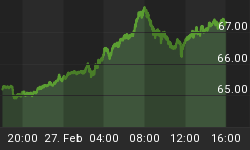Unfortunately there are no longer any truly conservative U.S. dollar denominated investments. That is because the U.S. dollar, the currency in which such investments are denominated, will conserve little in terms of its long-term global purchasing power.
The most important aspect of determining which investments qualify as being conservative is to first determine exactly what one is attempting to "conserve." If one's goal is simply to conserve the number of dollars one owns, then there are several domestic investments that will satisfy that simple criteria. However, what good is it to conserve dollars, if the dollars themselves do not conserve their purchasing power? After all, we do not want dollars for their intrinsic value; we want them for the goods and services they can buy. However, based on current U.S. monetary and fiscal policy, the many structural imbalances underlying the U.S. economy, and the potential monetization of massive funded and unfunded federal liabilities, the purchasing power of the dollar is likely to diminish substantially over time. Therefore, conservative investors need to ask themselves one very important question. What exactly am I trying to conserve?
I have asked and answered that question for myself, and have helped thousands of my clients to answer it as well. What we all really want to conserve is our purchasing power. At one time, when the dollar was sound, and Americans produced the goods they consumed, this goal was readily accomplished with certain types of dollar-based investments. However, like the song says; "The times they are a changing." Anyone wishing to truly be a conservative investor must be prepared to change with them.
If purchasing power is your goal, the investments that can best preserve it can only be found beyond American boarders. However, most stocks are not conservative, and neither are most currencies. The challenge is to choose the currencies that are most likely to conserve their purchasing power, based on objective economic and political criteria, and then to invest in conservative stocks denominated in those currencies -- those that might be thought of as being for "widows and orphans" for citizens of the countries in which they are domiciled.
Anyone accepting the premise that the dollar will lose a substantial percentage of its purchasing power will naturally develop an investment portfolio disproportionably comprised of foreign stocks. Remember, former Fed Chairman Paul Volker was recently quoted as predicting an 80% probability that the U.S. dollar will collapse within the next five years (a relatively short time horizon in the investment world) Conservative investors who take the former Fed Chairman's warning seriously, have no choice but to seek safety abroad.
However, if well diversified in both assets and countries, such a portfolio is no more overly concentrated in foreign currency than is a well diverse portfolio of domestic securities overly concentrated in dollars. The fact that such a portfolio might occasionally fall in value during temporary periods of dollar strength is the trade-off for its ability to rise in value during much more prolonged and pronounced periods of dollar weakness.
However, it is important not to exaggerate the negative effects of recent short-term dollar strength. For example, the following are the percentage changes of ten currencies against the U.S. dollar thus far in 2005.
New Zealand dollar down 2%
Australian dollar down 2.5%
Swiss franc down 10%
Singapore dollar down 1.7%
Japanese yen down 3.6%
Norwegian Kroner down 6%
Euro down 10%
Canadian dollar down 3.2%
British pound down 5%
Korean won up 4%
Average decline is 4%
Average decline without euro is 3.3%
Average decline without euro and Swiss franc 2.5%
Also, the following is a list of the percentage price changes, expressed in U.S. dollars, of the top 10 foreign positions, defined by total dollar value of the firm's aggregate positions, held by Euro Pacific Capital clients, listed in descending order of performance:
1. Up 27%
2. Up 20%
3. Up 3%
4. Down 1%
5. Down 1.8%
6. Down 2%
7. Down 2.8%
8. Down 3.5%
9. Down 4%
10.Down 5.5%
Average percentage gain + 4.7%
Average decline, excluding winners -2.9%
When dividends paid thus far this year on these securities are added to the appreciation, the total return thus far in 2005 for a hypothetical Euro Pacific Capital client, owning equal quantities of all 10 stocks, would have been about 9%. Annualized, the return would equate to approximately 21.5%
That compares with the total year to date return, including dividends, of the S & P 500 of less than 1%, which annualizes to less than 2%
To download a free copy of my latest research report entitled "The collapsing dollar, The Powerful Case for Investing in Foreign Equities," click the following link https://www.europac.net/report/index.asp?s=euroweb, or visit www.researchreport1.com
As always, past performance is no guarantee of future success, and actual returns achieved by Euro Pacific Capital clients vary depending on the compositions of their individual portfolios.















